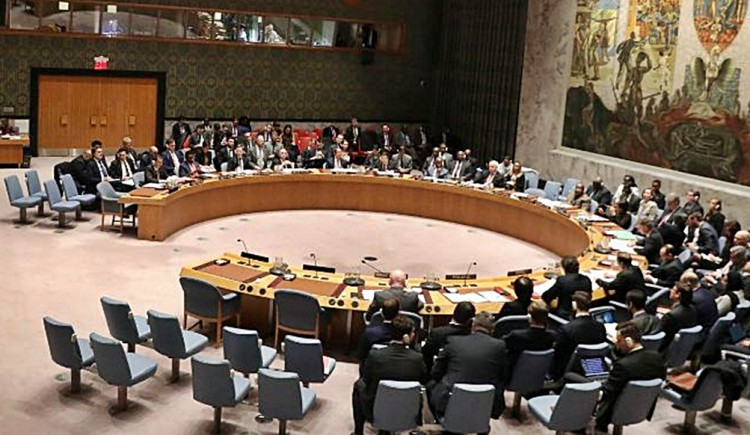The United Nations Security Council on Monday adopted a U.S.-drafted resolution calling for a cease-fire between Israel and Hamas in the Gaza Strip. The resolution, which was supported by 14 members of the Council with only Russia abstaining, urges Hamas to accept the cease-fire and hostage release proposal, aiming to end the eight-month-long conflict that has resulted in extensive casualties and suffering on both sides.
Nate Evans, spokesperson for the U.S. mission to the United Nations, emphasized the importance of the resolution, noting that it would facilitate a pause in fighting, the release of hostages, and an immediate increase in humanitarian assistance. "Israel has accepted this proposal and the Security Council has an opportunity to speak with one voice and call on Hamas to do the same," Evans said, highlighting the urgency of the situation.
U.S. Ambassador to the U.N. Linda Thomas-Greenfield reiterated this sentiment, stressing the need for an immediate and sustainable end to the hostilities. "Every day the war goes on, needless suffering continues," Thomas-Greenfield stated. "The United States and every single country in this chamber wants to see an immediate cease-fire with the release of hostages. We've heard those calls time and time again since Oct. 7. Now the opportunity is here. We must seize it."
Hamas, in a statement following the vote, expressed a willingness to engage with mediators to implement the principles of the cease-fire plan, which align with the demands of the Palestinian people and their resistance. This marks a critical juncture in the efforts to bring about a peaceful resolution to the conflict.
President Joe Biden has been a key proponent of the cease-fire plan, which he outlined in late May. Biden's proposal consists of three phases: an initial six-week cease-fire and withdrawal of Israeli forces from populated areas of Gaza, the release of a number of hostages, and the release of Palestinian prisoners; followed by a permanent cessation of hostilities and the release of all remaining living hostages; and finally, the reconstruction of Gaza and the return of remains of hostages to their families.
Secretary of State Antony Blinken, currently in the Middle East to further negotiate the cease-fire and hostage agreement, underscored the critical moment at hand. Speaking from Cairo before departing for Tel Aviv, Blinken urged regional governments and people to press Hamas to accept the cease-fire. "If you want to alleviate the terrible suffering of Palestinians in Gaza, press Hamas to say yes," Blinken stated. "If you want to get all the hostages home, press Hamas to say yes. If you want to prevent this conflict from spreading, press Hamas to say yes."
The resolution's passage comes after extensive negotiations and consultations, even though Israel is not a member of the Security Council. The vote represents a concerted effort by the international community to address the ongoing conflict and its humanitarian impact.
Despite the resolution's adoption, challenges remain. Hamas' acceptance of the cease-fire conditions and the practical implementation of the plan will be critical to its success. Additionally, the political dynamics within Israel, including the recent resignation of Benny Gantz from the War Cabinet, add another layer of complexity to the situation.
Russia's abstention from the vote, despite not vetoing the resolution, highlighted its concerns about the plan's specifics. Russian U.N. Ambassador Vassily Nebenzia questioned what Israel had specifically agreed to and criticized the resolution for its vague parameters. However, he acknowledged the resolution's broad support within the Arab world as a reason for not blocking it.






